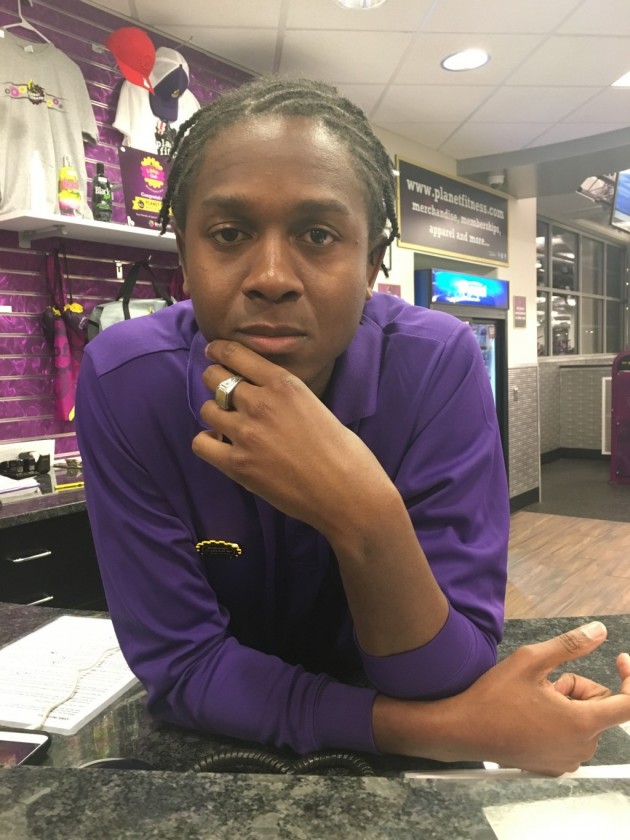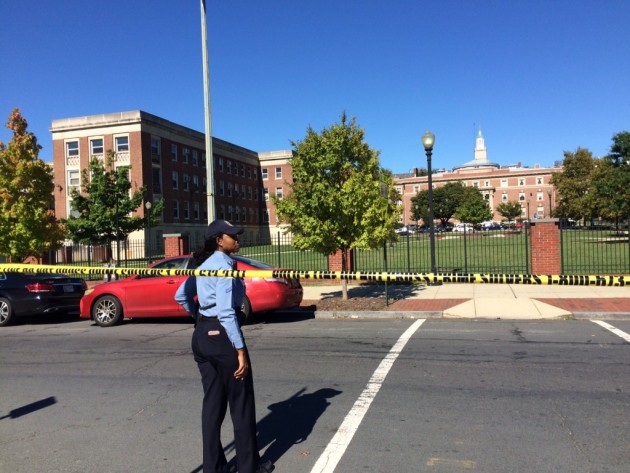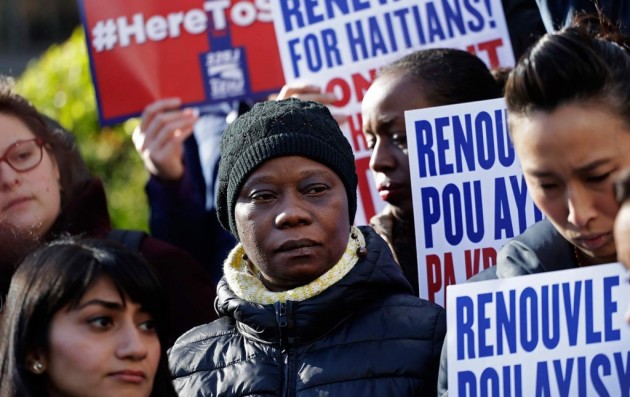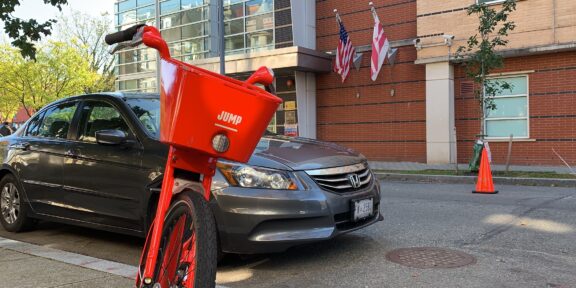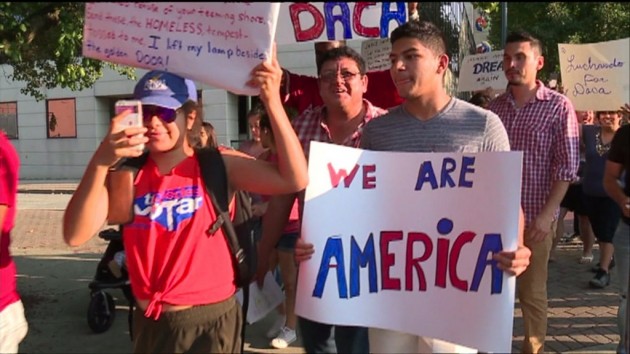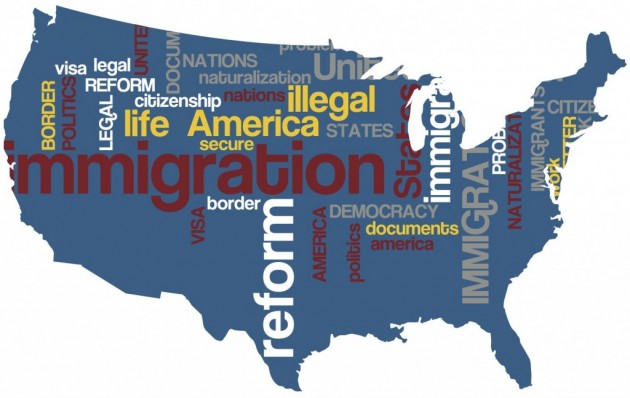They Say Immgration Not Just About Hispanics and Muslims
WASHINGTON— Working five days a week at the Okie Street Planet Fitness, 24-year-old Jamaican born immigrant, Nick Aras, leads a pretty simple life, but fears that the new immigration laws could possibly ruin the path he has spent years building.
After spending an eventful summer with his godmother, Asha Grey, affectionately known as ‘Auntie’, in Lauderdale Lakes, FL just off the southern coast, a then 8- year- old Aras received a call from his mother, Aisha Bailey, days before he was slated to return home to Kingston, Jamaica.

Photo by Noni Marshall- Nick Aras, a Jamaican immigrant is worried about the futue.
“Nicholas, you have to stay,” she said. Aras recounts his mother telling him that he would not be returning home for the school year. “You’ll stay with Auntie and I’ll come soon,” he recalls. After that phone call, Aras figured that his mother would be joining him within months, but Bailey never came and Aras never left.
In Grey’s eyes, this was an opportunity for Aras to get more of a taste of America, a place that he had romanticized his entire life.
“People back home think they know so much about America, but you don’t know what this place is about until you get here. And I’m still trying to decide how I feel about it,” said Grey.
After three years of waiting on his mom, Aras realized that she probably was not coming, ever, and Aras certainly was not going anywhere either.
With the help of Auntie, he applied for his Green Card and expected it to be approved within months. Aras hadn’t anticipated having to wait years to be considered a documented immigrant, especially because he was “just coming from Jamaica”.
“I thought Americans only had an issue with Middle-Eastern Americans, so since I’m not Middle-Eastern, I didn’t see what the hold up was,” said Aras.
Aras’s wait extended into his senior year of high school in 2012 when the Obama Administration created the Deferred Action for Childhood Arrivals Program, which gave forgiveness to undocumented immigrants who immigrated before the age of 16 and are currently under the age of 30. Aras fit perfectly into that category and saw his first glimpse of hope in several years. That is until the state of Florida refused to acknowledge this program.
Aras was back where he started: undocumented, hopeless, and invisible. “Nobody ever thinks of black immigrants who are having a hard time. It’s always about Mexicans or somebody else,” Aras said.
According to A Demographic Profile of Black Carribean Immigrants in the United States, Caribbean immigrants make up 74% of Black immigrants in the U.S.
Because of the ban placed in Florida, Aras along with his friend Xiomara Gaskin, a 24 year old Panamanian, were both unable to acquire Green Cards before applying to college.
“There was no point in pursuing college because I knew I wouldn’t be able to receive certain federal aid and I wouldn’t be able to pay for it,” said Gaskin.
Resolved to take up a trade while waiting for a policy change as a result of the most recent election, both Aras and Gaskin are worried about their progress in becoming citizens reversing. “The new administration will likely put a block on all of the progress that was made during the Obama era. I can’t afford that,” said Gaskin. “I want to go to college like my peers, but now that seems almost impossible.”
Aras and Gaskin are not alone. Their concerns are echoed throughout the Caribbean immigrant community and will be at the forefront of their worries until they feel heard.
“We need to do something about this. I’m tired of feeling hopeless. I want to be acknowledged. One protest isn’t going to do the trick. I don’t know what will work…but I know that what we have been doing isn’t enough,” said Aras.

